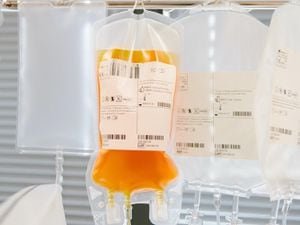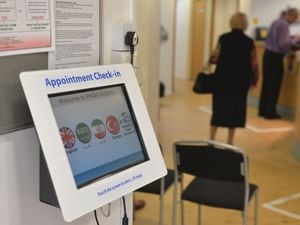Study suggests blood plasma may be safe for coronavirus treatment
The plasma from former patients is rich in the antibodies that develop as a person recovers from an illness.

Blood plasma may be a safe treatment to use in diverse patients with coronavirus, a new study suggests.
Researchers from the Mayo Clinic transfused thousands of Covid-19 patients with convalescent plasma, and said the results show it is a safe method for treating the disease.
The study looked at the seven days following transfusion for patients admitted to hospital between April 3 and June 11 who were deemed at risk of progressing to a severe or life-threatening condition.
Researchers found that seven-day mortality rates declined to 8.6% compared with 12% in a previous safety study of the first 5,000 transfused patients.
Serious adverse events continued to be less than 1%, according to the study.
But they warned that, while the report reveals a decline in mortality which appears contemporary with the more rapid availability of plasma for use, this alone does not provide any evidence on the effectiveness of convalescent plasma for treating Covid-19.
The researchers wrote: “These updated data provide robust evidence that transfusion of convalescent plasma is safe in hospitalised patients with Covid-19, and support the notion that earlier administration of plasma within the clinical course of Covid-19 is more likely to reduce mortality.”
The plasma from former patients is rich in the antibodies that develop as a person recovers from an illness.
It is transfused into people who are seriously ill with Covid-19 and struggling to develop their own antibodies.
Michael Joyner, principal investigator and lead author of the study, which was reported in Mayo Clinic Proceedings, said: “Our efforts to understand convalescent plasma continue.
“We’re optimistic but must remain objective as we assess increasing amounts of data.”
The research, from the US Food and Drug Administration’s Expanded Access Programme for Covid-19, will next look at determining indicators of efficacy.
The researchers said that, while the mortality rate has decreased, the patients in the latter part of the study were less critically ill.
They also said the decrease may in part be due to improved medical care based on increased knowledge during the pandemic and that more of the patients received the plasma earlier in their hospital treatment.
They added that, as donors came forward more rapidly, it was more likely that their plasma contained neutralising antibodies.
The UK is running a national testing programme and anyone who tests positive for Covid-19 will be asked to join a blood plasma trial.
A major trial is continuing to assess whether convalescent plasma donations can be transfused into patients who are struggling to develop their own immune response.





